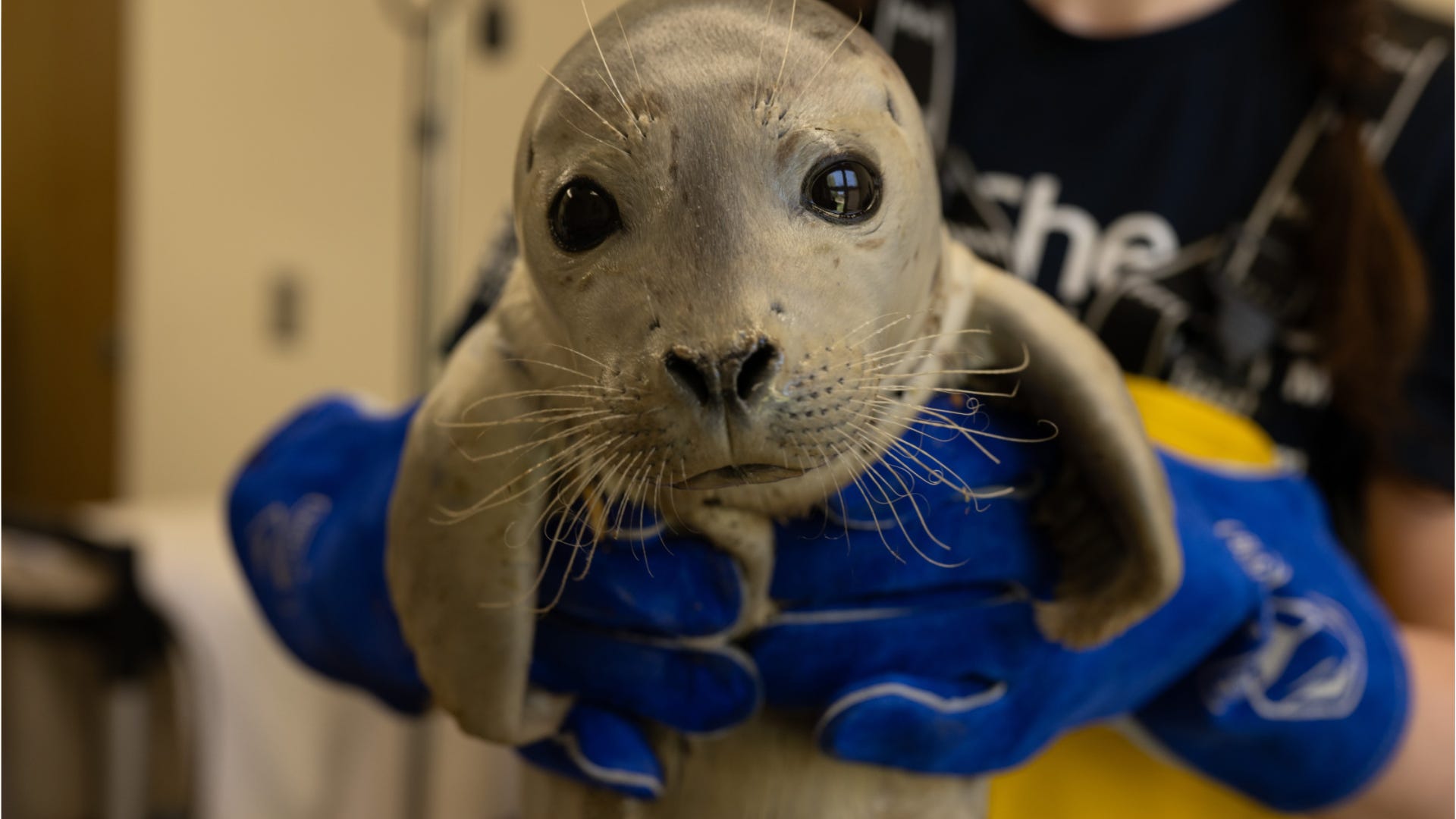Who stabbed a baby elephant seal? Person of interest sought

Federal wildlife authorities are searching for a person of interest in the stabbing of a baby elephant seal on an Oregon beach, leaving it injured with multiple wounds.
The 225-pound pup was stabbed on March 16 sometime between 8 p.m. and 11:30 p.m. in a cove on a beach in Neskowin, Oregon, a coastal community in the northwestern part of the state, according to the National Oceanic and Atmospheric Administration's Office of Law Enforcement.
The elephant seal survived, and was monitored by NOAA's Marine Stranding Team and later relocated, the office said in a news release.
The pup was about a month old when it was stabbed, NOAA-Fisheries Office of Law Enforcement Deputy Special Agent in Charge Eric Morgan said in an email to Paste BN. Its injuries were on its back and left side, but it recovered fairly quickly and was last seen near Seaside, Oregon, about 80 miles away.
"The seal had likely just recently left its mother to learn to hunt and survive on its own," Morgan said.
The agency is seeking information about anyone involved in the stabbing and urging the public to provide tips at the NOAA Enforcement Hotline at (800) 853-1964.
Person of interest wanted in seal stabbing
A person of interest was identified in the investigation into the stabbing of the elephant seal pup, NOAA said. It wasn't clear how the person of interest was discovered by officials.
The person of interest is described as a white male about 5-foot-10-inches tall with a groomed beard and a gap between his two front teeth. A witness described him wearing aviator-style glasses with a cap bearing a logo of an excavator and the word "Timber."
Officials said they are also looking for information on a dark blue 1990s Dodge or Chrysler van seen in a parking lot near the site of the stabbing. The van had a rear window "covered in plastic," NOAA said.
Harming elephant seals violates protection act
The 1972 Marine Mammal Protection Act prohibits killing, harming, harassing, or feeding marine mammals, including elephant seals.
"Violations can be prosecuted civilly or criminally and are punishable by up to $100,000 in fines and up to 1 year in jail per violation," the NOAA said.
Morgan said beachgoers should stay a safe distance from marine animals for their own safety and the safety of the animals.
"During pupping season, we get numerous reports of human interaction with pups, where members of the public want to get a closer look at these beautiful animals," Morgan said. "However, individuals intentionally harming one of these pups is extremely rare."
Northern elephant seals are found in the eastern and central North Pacific Ocean and usually give birth around the Channel Islands off California between December and March, according to NOAA Fisheries. Pups are weaned from their mothers after about a month to six weeks.
Newborns weigh about 75 pounds and are 4 feet in length, and gain about 10 pounds every day in their first month of life, according to the Marine Mammal Center. Once pups are weaned, they are about 300 pounds and spend time on beaches with other elephant seals in what's known as a rookery, and will venture into the water for short periods, learning to swim and find food, the Marine Mammal Center said.
When they're fully grown, elephant seal males can reach over 13 feet and 4,400 pounds, while females grow to about 10 feet long and weigh up to 1,300 pounds.